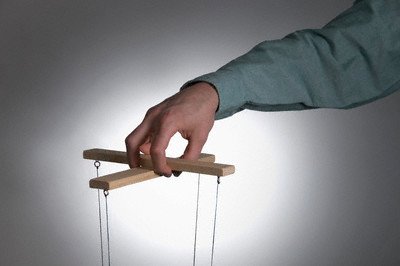Now hold on for a second, I know what you're thinking, "Of course serotonin deficiency is the cause of depression! Why else doctors consistently prescribe Selective Serotonin Re-uptake Inhibitors(SSRIs)". But a deeper look might be in order before we continue down this path. If they were working then we'd probably have a myriad of evidence proving they work, not to mention globs of evidence showing that serotonin deficiency is the cause of depression. If you've taken SSRIs and found success, then it could be more likely that it's in spite of them or you lucked out and did have some serotonin issues. I'll explain further. But first, let's take a look at where the serotonin deficiency theory came from.
Origin of the Myth

That right above this is Rauwolfia serpentina (Indian snakeroot). Why is this important? Well in 1952 an isolate was taken away from this plant called Reserpine. Reserpine was shown to deplete serotonin drastically and cause depression, mood alterations, and even suicidal tendencies.[1][2] Dr. Joseph J. Schildkraut, A Harvard Psychiatrist thought that since these drug induced tendencies and mood alterations were happening they might serve as a good model for understanding natural depression. Within a short while the Psychiatric Business Model was ready to burst forth and change the way we treat.. well just about everything. Let the onslaught of pill-pushing commence.
We started noticing that in fact some of these pills do actually help some people with their symptoms but so can alcohol, does it mean that's a solid long-term choice? Kelly Brogan, M.D. had this to caution us against using this backward first logic, "The most applicable analogy is that of the woman with social phobia who finds that drinking two cocktails eases her symptoms. One could imagine, how, in a 6 week randomized trial, this “treatment” could be found efficacious and recommended for daily use and even prevention of symptoms. How her withdrawal symptoms after 10 years of daily compliance could lead those around her to believe that she “needed” the alcohol to correct an imbalance. This analogy is all too close to the truth."
Data Manipulation

There's a huge incentive for people in the pharmaceutical industry to avoid actually having to get down to whether or not serotonin deficiency is the cause of depression and provide any evidence for it. But that doesn't slow them down. Instead, they will fund their own trials and shift data around they've been caught doing this more than once. An article published in the prestigious New England Journal of Medicine using FOIA files highlights this point extremely well. The title of the paper "Selective Publication of Antidepressant Trials and Its Influence on Apparent Efficacy". That's not the only time people have scrutinized evidence coming from the psychiatric industry. The Cochrane Review Group is well known for taking a rigorous approach to looking at data and really judging efficacy of treatments by doing big meta-reviews had this to say about antidepressants' efficacy, "The more conservative estimates from the present analysis found that differences between antidepressants and active placebos were small. This suggests that unblinding effects may inflate the efficacy of antidepressants in trials using inert placebos. Further research into unblinding is warranted."[3]
Another study done by independent researchers with millions of dollars poured into it called STAR*D was non-blinded and everyone knew what they were getting so no placebos were there. Which patients were given Celexa at the beginning, and if that didn't prove well they moved onto the other common drugs like Zoloft, Effexor or Wellbutrin and would add in what is, in my opinion a highly ineffective pill that people hand out Buspar(also used in placebos in a lot of studies just to highlight that it really is a lot of nonsense). The results? About 50% of the patients noted improvement around 8 weeks, but after 12 months only 3 percent of the people they followed actually showed signs of remission. Impressive to say the least. Sarcasm aside, there are plenty of things highlighting the fraud that is going on, but with big dollars to fuel this, don't expect it to die anytime soon.
So, Is it actually Serotonin?
"The method of acute tryptophan depletion (ATD), which reduces the availability of the essential amino acid tryptophan (TRP), the dietary serotonin (5-hydroxytryptamine (5-HT)) precursor, has been applied in many experimental studies. ATD application leads to decreased availability of TRP in the brain and its synthesis into 5-HT. It is therefore assumed that a decrease in 5-HT release and subsequent blunted neurotransmission is the underlying mechanism for the behavioural effects of ATD. However, direct evidence that ATD decreases extracellular 5-HT concentrations is lacking. Furthermore, several studies provide support for alternative underlying mechanisms of ATD. This may question the utility of the method as a selective serotonergic challenge tool. As ATD is extensively used for investigating the role of 5-HT in cognitive functions and psychiatric disorders, the potential of alternative mechanisms and possible confounding factors should be taken into account. It is suggested that caution is required when interpreting ATD effects in terms of a selective serotonergic effect." [4] Basically, what that's saying is there is a clear lack of any proof that depleting people's tryptophan actually decreases Serotonin levels.
Now back to Reserpine our little friendly isolate of the beautiful Indian Snakeroot. Alan A. Baumeister clearly challenged the notion that Reserpine is, in fact causing serotonin depression whatsoever. In this paper titled The Myth of Reserpine-Induced Depression: Role in the Historical Development of the Monoamine Hypothesis it's stated, "The present paper argues that, contrary to prevailing belief, reserpine is not depressogenic. The reason for perpetuation of this myth is reluctance to discard the monoamine hypothesis. This hypothesis ushered the modern biochemical paradigm into psychiatry and is still of great importance. It serves as a heuristic to guide research, it enhances psychiatry’s prestige, and it helps to validate and promote drug therapy for depression and other mental disorders."
There are piles and piles of evidence showing that Serotonin most likely is not the culprit in depression. But we continue to perpetuate this myth because they've built a huge industry on it. One study that really stood out to me was this one where they followed people for 10 years that got treated by conventional means and ones that chose to not get medicine. Nearly 80% of the patients who didn't receive medication for their depression had no signs of relapse while the treated group only half of them went without relapse. The non-treated group showed a significant increase in psychological well-being and resiliency compared to the treated group.
We need to start asking ourselves, "Is this really the proper way to treat Depression?"
Hi! I am a content-detection robot. This post is to help manual curators; I have NOT flagged you.
Here is similar content:
http://www.ncbi.nlm.nih.gov/pubmed/21339754
Downvoting a post can decrease pending rewards and make it less visible. Common reasons:
Submit
Well mr. cheetah I'd hope that my sources would have similar content ;)
Downvoting a post can decrease pending rewards and make it less visible. Common reasons:
Submit
The most outstanding idiocy of this serotonin-centric antidepressant 'research' is that right next to it is also this 'dopamine theory' of addiction. Depression is lack of motivation, essentially. Addiction is acute motivation towards a specific activity. In fact, dopamine-agonists and reuptake inhibitors are far more effective at temporarily diminishing depression, thus the comment about alcohol. Alcohol does not directly raise dopamine, but rather it attenuates GABA activity and this causes a temporary rise in the activity of one of gaba's opposing neurotransmitters, being dopamine (and norepinephrine of course).
In fact, the absolute best antidepressant, and it's very hard to get your hands on it, is a russian developed peptide drug called Semax. This is a 7 unit amino acid peptide chain containing a fragment of a spleen enzyme. This peptide causes an increase of activity of astrocytes and physically causes the hippocampus to grow in size. The way this fights depression is actually by dramatically increasing neuroplasticity and neuroplasticity is what is required to learn. So in fact depression is simply giving up on learning. Addiction really is another version of this that is active rather than passive.
Downvoting a post can decrease pending rewards and make it less visible. Common reasons:
Submit
Holy moly, thanks for that input. I appreciate it.
Downvoting a post can decrease pending rewards and make it less visible. Common reasons:
Submit
I actually got that wrong about the mechanism of alcohol, it's even more indirect. What happens is that ethanol participates in the synthesis of testosterone, in small amounts it accelerates the production of new testosterone. Unfortunately this also depletes productive capacity in the long term but I will leave that aside for the moment. The increase of testosterone then stimulates the release of dopamine. Interestingly, ethanol also interacts with cocaine by forming a more potent form of cocaine, called ethyl-cocaine. This is why it is very common for cocaine to be combined with alcohol.
Downvoting a post can decrease pending rewards and make it less visible. Common reasons:
Submit
Hahaha bot flagged you for citations.
Downvoting a post can decrease pending rewards and make it less visible. Common reasons:
Submit
" I have NOT flagged you." :p
Downvoting a post can decrease pending rewards and make it less visible. Common reasons:
Submit